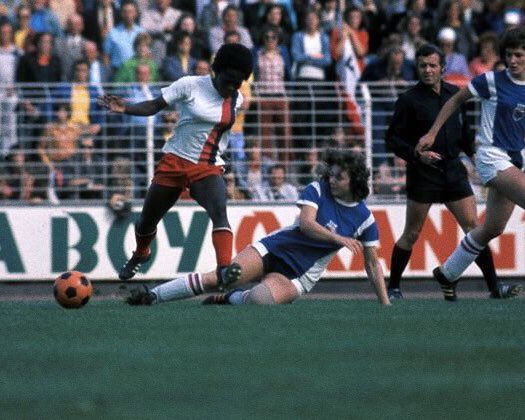The Women’s Football scene around the globe is probably at its peak at the current age and time.
The beautiful game has arguably never been kinder to the ladies, with more inclusiveness as well as equality being encouraged in the sport over the last few decades.
In an example of just how far equality in football has come, last year the United States judicial system approved an equal pay agreement for the Men’s and Women’s Soccer teams.
That meant that the US Men’s national team as well as the US Women’s National team members would be getting similar wages.
However, life as a female footballer was not as swell and good all the time.
The Women’s football scene has only taken proper shape since the late 20th century or the kickstart of the 21st century. Before that, life was tough being a professional woman footballer.
Not only did the female footballers during that period have to withstand their counterparts receiving a hugely increased salary over theirs, but opportunities to play games or showcase their skills to the audience were more limited than it is nowadays.
Just to exemplify the lack of equality among Men and Female footballers from the decades after World War II – a simple question would be how many women footballers of the 1960s, 1970s or even 1980s are prominently remembered among the fans?
One such female footballer to have seriously gone under the radar in the 1970s was Jamaican star, Beverly Ranger.
The Origins of Beverly Ranger
Born in 1953 in Jamaica, Ranger migrated to England at the age of 12. At that time, she could not really imagine pursuing professional football as a career.
But because of her love for the beautiful game, she started playing park football with some boys near the Old Wembley Stadium.
She was so good that some journalists urged her to join a professional career. Soon after, Ranger joined the Watford Ladies team during her teenage years.
After a period with the English club, she moved to Germany and it was in that country that Ranger achieved something truly special.
Ranger’s pioneering steps in Germany
The Jamaican footballer opted to try her hand in the Bundesliga in the 1970s.
Not only did she get a lot of success with clubs, winning the first division championship with SSG Bergisch Gladbach in 1975, but she achieved something no other female footballer before her had managed in the country.

Ranger was regarded as the first professional female footballer in Germany, reportedly being the first female footballer to earn her living from the sport in the country.
She penned a deal with Puma during the height of her success in the Bundesliga, in which she reportedly received 3,000 DM per month.
Her contribution over improve Women’s Football popularity
Ranger was an amazing standout in the Women’s Football scene in Germany during the 1970s. For one, she was a rare coloured woman to be playing in the first division of the Women’s Championship which was dominated by German footballers at the time.
Despite the colour of her skin and her origins – which did see her victim of a lot of racism at the time – the Jamaican footballer was able to win over a lot of fans with her sheer skill.
In terms of her playing style, Ranger was almost unplayable. She had a similar playing style to Diego Maradona, who actually started to gain prominence in the 1980s.
The Jamaican forward’s playing style made it almost a necessity for the football supporters in Germany at the time to come watch her.
Her incredible dribbling skills saw her move past bodies at ease and make fans question whether she had some kind of glue stuck to her feet.
Ranger loved to dance past opposition players at will and scored some incredible goals to wow the fans. In 1975, she won the ARD ‘Goal of the Month’ award and only became the second woman to do so.
Even though Women’s Football wasn’t as popular in the country back then as it is now, Ranger’s sheer skill improved the popularity of the game. It led to more fans coming to attend female football games just to watch her in action.
Where is she now?
Towards the end of the 1970s, after attaining success with FFC 08 Niederkirchen and Kickers Offenbach, Ranger decided to end her professional football career on a high note.
Being satisfied with what she had achieved in a foreign country, the Jamaican footballer opted to settle down with her family and do something different.
Soon after retiring from football, she moved to the United States of America and relocated to Charlotte, North Carolina.
Rangers reportedly started working as a teacher in the USA after that, far away from professional football and not showing any eagerness to return to the beautiful game either.
Ranger might not be as popular as some of the world-class female footballers now.
But her sheer courage to attain success in a foreign country in the 1970s and seek a profession in football at that period helped carve a path for many that came after her and prove that women can also have successful careers in football.



